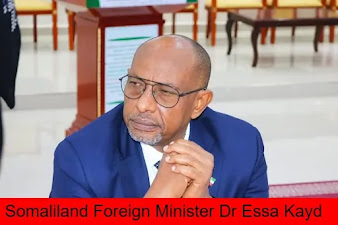The Coca Cola Diplomacy, Coming of Age, Independence Party
Coca Cola Implicitly Recognizes Somaliland Independence
In a very significant move, Coca-Cola has granted a second “national” franchise to cover the de facto states of Somaliland in addition to the defunct franchise granted to the defunct central authority in Mogadishu, Somaliland247 reports [1]. Doing so means that Coca-Cola has given implicit recognition of the Somaliland by including it separately from the rest of Somalia, a move that promises economic development in an area where growth and development have been hindered because of geopolitical problems.
The license was granted by Coca-Cola in late 2010, after long being denied, to Ahmed Guelleh, owner of Somaliland Beverage Industries. Mr. Guelleh is a member of a family-based trading operation whose $5 a year import/export firm deals in exporting such diverse products as oats and frankincense and importing tires, serving as the Somaliland representative of DHL, and now serving as Somaliland’s Coca-Cola franchise.
In order to make Coca-Cola’s operations viable in Somaliland, it was first necessary to receive a license from Coca-Cola, which was done after long efforts and due dilligence. Then, it was necessary to build a $10 million bottling factory, which took a lot of digging for water in order to find sufficient water for bottling operations. This process was hindered by difficulties in finding and receiving key supplies (like bitumen) as well as a shortage of skilled labor due to geopolitical concerns. Nonetheless, the project is near completion and is expected to provide an annual profit of $3.2 million to Gulleh’s firm and employ 130 Somaliland workers to fill 11,000 Coca-Cola bottles per hour. That represents major progress for Somaliland business and diplomacy.
One interesting problem that the local Somaliland company had to solve was the water shortage in Somaliland and Puntland. Only plastic bottles will be used due to the shortage in water to wash glass bottles and the difficulties and delays in receiving recycled bottles back from the troubled east. Therefore, a break-even arrangement was made with an Indian firm to ship the plastic to India in exchange for payment for the recycled plastic. Perhaps a useful future business investment would be for Somaliland to develop its own recycling factories and firms. One noteworthy encouragement for future business partners in Somaliland is that the nation’s lack of bribery and red-tape means that business can proceed smoothly and profitably in Somaliland for those companies that have the political will to recognize this long-independent nation.


Comments
Post a Comment